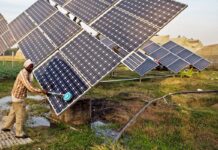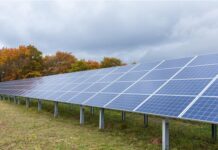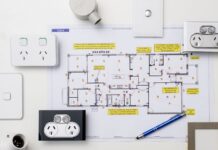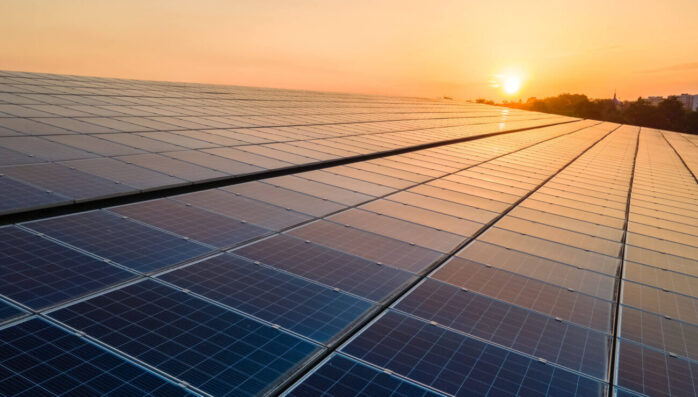
Ready to power up your business?
By choosing to create your own electricity with the power of the sun, you’ll be doing an incredible thing for the planet. With investment in solar power now exceeding that of crude oil, it’s clear that domestic and commercial consumers now realize the benefits of this technology.
Whether you’re upscaling or buying your very first corporate building this year, it’s worth knowing all about solar panels and the advantages they could bring.
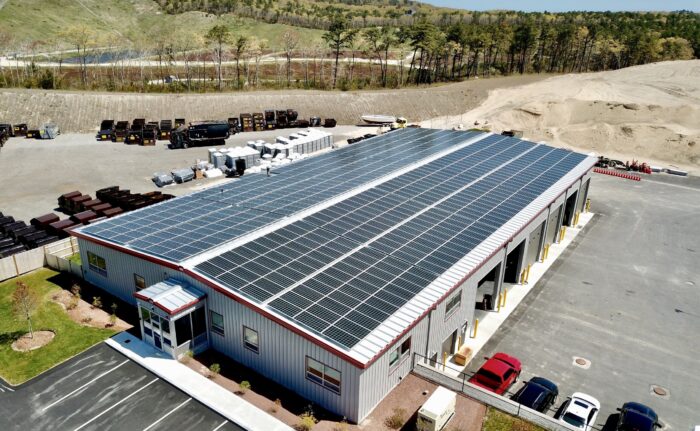
How do Solar Panels Work And generate electricity?
The solar panel sheets are installed in exposed areas where they can easily absorb the sunlight. Silicon is used to build solar cells, which, when combined, produce solar energy. Photons lose electrons from their atoms when they collide with the solar cell. As the positive and negative sides of a conductor cell are linked, an electrical circuit is created, and as electrons move through this type of circuit, electricity is produced. The whole process ensures that electricity is produced and can be used for a long time.
What are commercial solar panels?
Commercial solar panels are the same as those used on the rooftops of houses – just developed and installed specifically for your business. Several different big ventures highly use them as they fulfill the need of huge power requirements. Due to the irregular nature of the shapes and sizes of buildings, solar panels are often custom-built. However, it’s also possible to order standard sizes.
Solar panels work by absorbing energy from sunlight, which creates an electrical charge within internal PV cells and, in turn, causes electricity to flow. This is one of the greatest ways to ensure optimum use of resources. The biggest advantage of using solar power is that it is a clean and renewable source of energy, which goes hand in hand with the ability to live off the grid provided by solar panels. We must take all necessary steps to lessen the strain that greenhouse gas emissions are placing on our environment in light of the emergence of global climate change. We need to go for options that support sustainable development and do not harm the environment in any way. Solar panels require minimum maintenance because they don’t have any moving parts.
If you create more energy than you need, solar electricity can be stored using power products and then used later. This ensures that solar power is never wasteful!
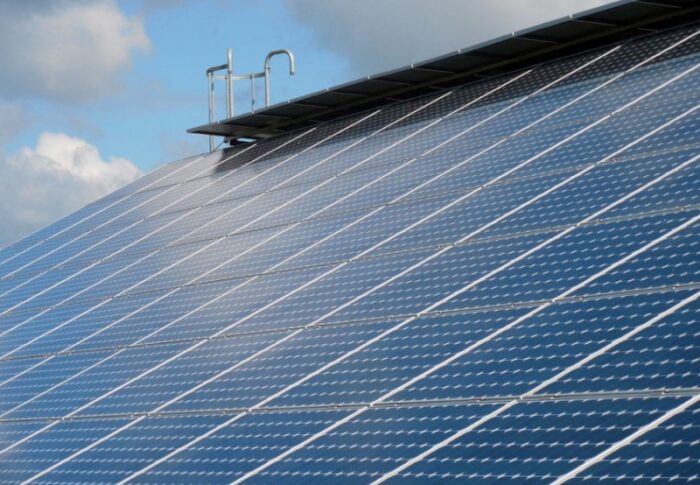
How much electricity do solar panels produce?
Solar panels can produce hundreds of watts per hour, but the required number will depend on the sunshine hours. It’s typically recommended that the average home should have at least 17 solar panels installed to meet all energy requirements. Even if you do not use the required amount of solar energy then, you can use it in the future as well by storing it in the power products.
Without an expansive roof space, it’s unlikely that solar panels will provide all the electricity your business needs. Even so, reducing your dependence on the grid supply is a step in the right direction.
Why should businesses consider installing solar panels?
• They’re cost-effective
Since they’re available with governmental grants, solar panels make a brilliant long-term investment for eco-conscious companies. Support for companies adopting renewable energy solutions is available in most countries, this can help to offset the installation costs. The quantity of electricity you save will vary based on your usage patterns, solar energy system capacity, and system size. You can save up your cost by saving some part of your energy as well. Also, solar panels are not too expensive compared dto other energy sources. This way, it becomes a cost-effective medium.
Furthermore, some initiatives allow you to sell surplus energy back to the grid. If you don’t need to store it or use it soon, this offers great potential for an early return on your investment.
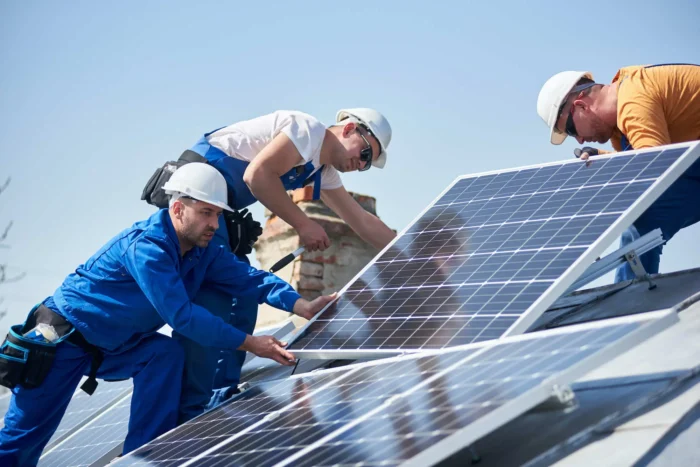
• Low maintenance commitments
Solar panels have a long lifespan and require minimal maintenance once installed. It should be checked from time to time, but there is no requirement for too much maintenance.
They’re not only designed to withstand challenging weather conditions, including wind, rain, and snow, but they boast longevity too. With professional installation and timely cleaning, they can work efficiently for up to 30 years – or even longer. This ensures a dependable source of energy for your business, which could prove invaluable in the event of a network outage.
• The adaptability of technology
The technological adaptability of solar energy is equally impressive. Recently there have been many advancements in solar panels as well so that they can be used for different purposes and gadgets. Photovoltaic panels are the first thing that comes to mind. Still, solar energy can also be utilized to generate thermal energy by heating fluids or in the case of the most advanced thermodynamic solar power plants, by mixing the two types. Scientists are working intensively to find more useful components for solar energy and solar panels and how the process can be refined and help to get the most out of the resources.
• Environmental responsibility
Either in part or entirely, creating electricity for your business is kinder to the planet than relying on the grid. Not all energy stems from renewable sources, so it’s one of the easiest ways to guarantee the origins of the power you use.
Solar panels not only reflect your commitment to the environment but help to reduce your overall impact as a business, too. This could boost your reputation among clients, stakeholders, and employees. Solar panels don’t emit any emissions, offering a clean and long-lasting renewable energy solution.
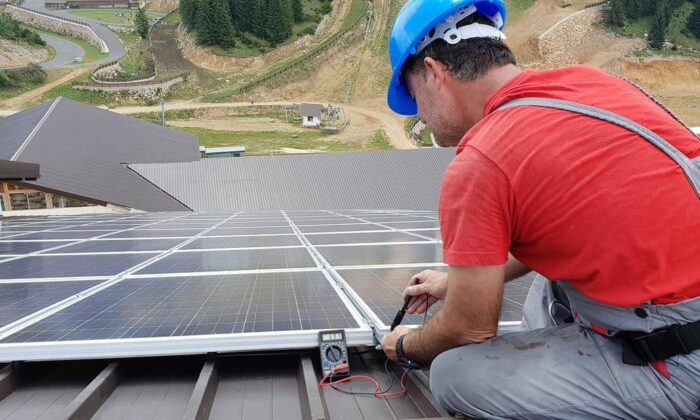
Overview
Solar panels are a responsible choice for any business with a large brick-and-mortar base. In addition to improving brand image, solar power provides an efficient and responsible solution to long-term renewable energy production. Solar panels are the future and present of the environment, and every kWh produced from solar energy should be used in the best way possible way as even though it is a renewable resource still should be taken care of and used in the best manner.



